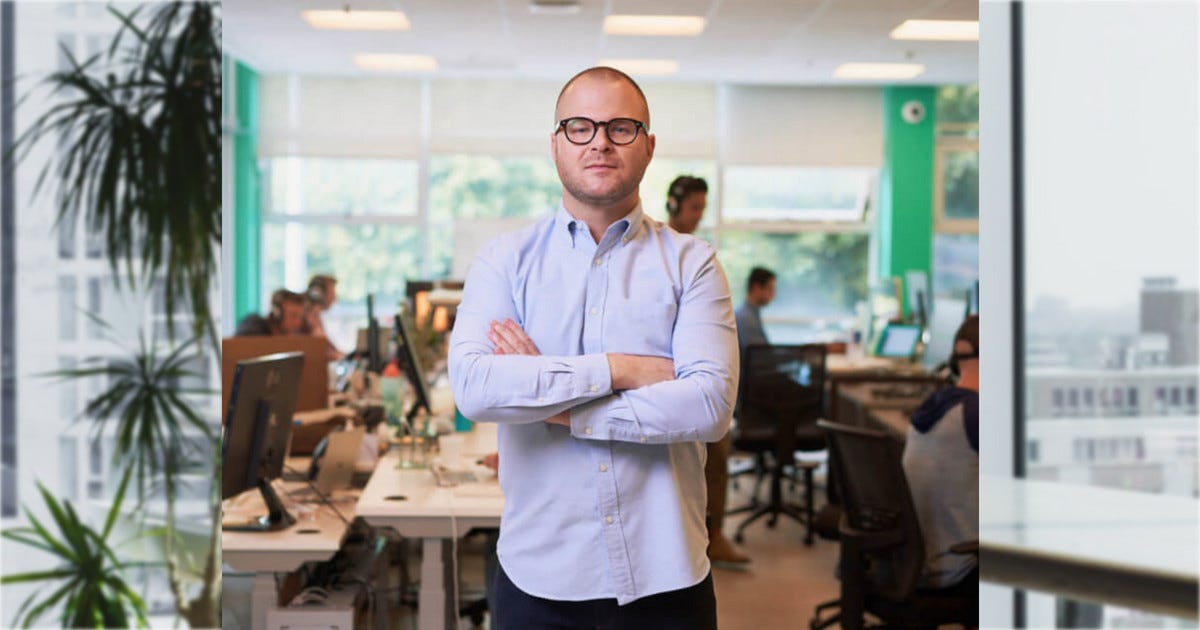How I Built an $8M Business with 0 Employees | Justin Welsh (Solopreneur)
A masterclass on how to manage your time, find your niche, get discovered, and create stacked offers to scale your creator business
Dear subscribers,
Today, I want to share a new episode with Justin Welsh, a 7-figure solopreneur.
Justin burned out from startups in 2019 after suffering a panic attack. Since then, he’s built an $8M one-person business and an audience of millions of readers. His new course, Creator MBA, is one of the most practical courses I’ve ever taken.
Watch now on YouTube, Apple, and Spotify.
Justin and I talked about:
(00:00) Using stacked offers build an $8M solo business
(01:47) Leaving the traditional career ladder after a panic attack
(05:53) How to build a side hustle while employed
(08:41) An exercise to take back your time
(12:59) Finding your niche and unique value proposition
(19:02) Creating a movement and identifying your "enemy"
(23:00) A simple creator funnel to scale solo businesses
(27:01) Changes that led to exponential growth in Justin's business
(27:29) How Justin uses AI to optimize his funnel
(39:22) Closing advice for tech people to take back control
Keep reading for the takeaways.
From startup executive to solopreneur
Welcome Justin! So 5 years ago you were the VP of Sales at a fast growing startup with 150 reports. When did you realize that you needed a change?
I loved being VP of Sales but the team was big, the targets were big, and it just got more nerve-wracking over time.
People think burnout comes from working too hard, but it really comes from losing control.
It's like playing Tetris — as the pieces fall faster you must move quicker. If you mess up, it compounds very quickly because the pieces start stacking on top of each other. That's what it's like when you feel out of control in your role.
I knew I needed a break because I coped with burnout the same way that many others did - I ate too much, drank too much, didn't exercise much, didn't get much sleep, wasn't a great husband, and wasn't paying attention to my family.
It all culminated in a panic attack in December 2018. If you've never had one, it sounds silly, but it was a pretty meaningful day of my life when I thought I was dying.
That was the day I knew I needed to make a change. I had a conversation with my bosses the following Monday, and they were super receptive. I ended up staying for another eight months while getting myself back into mental and physical shape.
It's a big leap to tell your boss that you don’t want to be SVP. How did you manage?
I got lucky in a weird way. Many people need to balance their side hustle with their jobs. I had no choice — I'd backed myself into a corner physically and mentally, and my only choice was to take a break. Weirdly, that was a very lucky thing to happen to me because it was the only option I had.
Many tech people are feeling burned out these days. What's your advice for folks who want to take back control of their careers?
It's a phased approach. I think there's a lot of propaganda about working four hours a day on the beach. Sure, maybe you can get there eventually. But the authentic way to gain back some control is just that — gradual.
First, figure out how to get some attention, whether online or local. If you can find 15 extra minutes daily to put yourself out there, sharing the knowledge and skills you've accumulated over your career or hobbies, that's a great start.
Figure out what it means to market yourself. So many people are smart and have awesome business ideas, great products, or services but can't communicate.
In the end, communicating your value is what matters most.
Practice that for a long time until you get good at it. Once you're good at sharing your expertise, you can start making a little extra money — doing some coaching, maybe building a product, or starting a micro SaaS consulting business.
Keep growing until you've reached a certain threshold, like maybe 60-70% of your take-home earnings. Then consider taking the leap to get 40 hours a week back.
Think of it as a phased, gradual approach over many years. Just because you see someone who did it faster doesn't mean that's the right way to do it.
You’re amazing at creating systems to scale your work. I particularly love your time management system — can you talk more about that?
You should spend time on the 20% of things that maximize 80% of your intended outcome.
Here’s how I do it:



